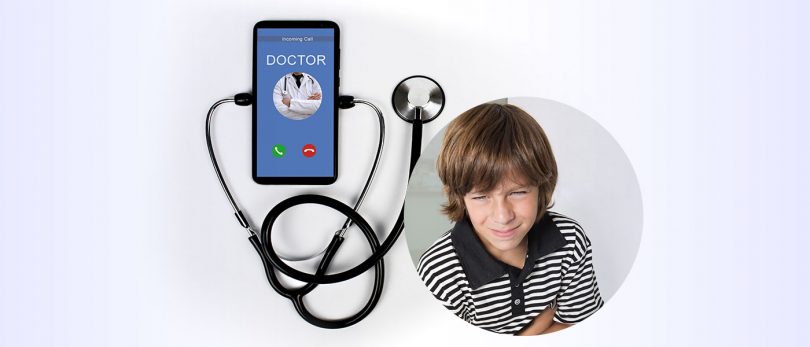For the past few years, UHS has quietly expanded its telehealth offerings. To put it simply, telehealth allows UHS providers to bring the same personal and individualized care that they give to patients in person to other patients remotely, using the internet.
Beginning with telemental health services at UHS Delaware Valley Hospital and continuing with other projects, such as follow-up diabetes care, cardiology, endocrinology and dermatology, UHS is now bringing telehealth care to its Walk-In Centers (see “Virtual Visits”) and to local schools.
Why Telehealth?
While the convenience factor of telehealth is obvious—it allows patients to receive care closer to where they live, making traveling for care less onerous—it also provides access to services for people who might not otherwise have that access. John J. Gianonne, MD, family medicine specialist at UHS Primary Care Deposit, who is heading up the UHS school-based telehealth program, explains that for a significant portion of the UHS community, the travel time required to visit a specific location for specialized services can be a barrier to care.
“If you think about it, there are many services specialists provide that don’t require patients going to the specialist’s office,” he says. “There are many things that can be done with a patient at a remote site, so they don’t have to worry about traveling long distances to seek specialty care.”
Meeting Students Where They Are
After a launch at the Windsor Central High School this spring, UHS’ school-based telehealth program will expand to the entire Windsor Central School District in Windsor, N.Y., this fall. Students who are ill will be able to video conference with UHS physicians while at school, and physicians will be able to examine them, recommend treatments and prescribe medications if appropriate.
This program has many advantages for students and their parents. Not only does it keep students in school and also make getting treatment for everyday illnesses easier for them, but it also means they don’t need to be picked up from school and taken to the doctor, saving their parents a trip and the need to leave work.
“I think that telehealth is going to be an extremely valuable tool for us moving forward,” says Doris Hughes, FNP-BC, BC-ADM, nurse practitioner at the UHS Diabetes & Endocrinology Center. Since she started administering diabetes follow-up visits using telehealth, Ms. Hughes has had over 150 telehealth visits, including over 100 visits just this year. “We have a huge region to cover, and the technology allows us to provide these services to more patients.”
While the school-based telehealth program is currently only operating at Windsor Central High School, the plan is to push it to other school districts in the area. In general, Dr. Gianonne explains that the expansion of telehealth is an important way for UHS to reach out to its growing community and, ultimately, provide better access to services.
“When I think about the future of telemedicine, what we’re doing now is the first step,” he says. “And that’s where UHS is headed.”
CONVENIENT CARE
In addition to its various telemedicine programs, UHS also recently launched the UHS Virtual Walk-In Program. Visit nyuhs.zipnosis.com to learn more.







